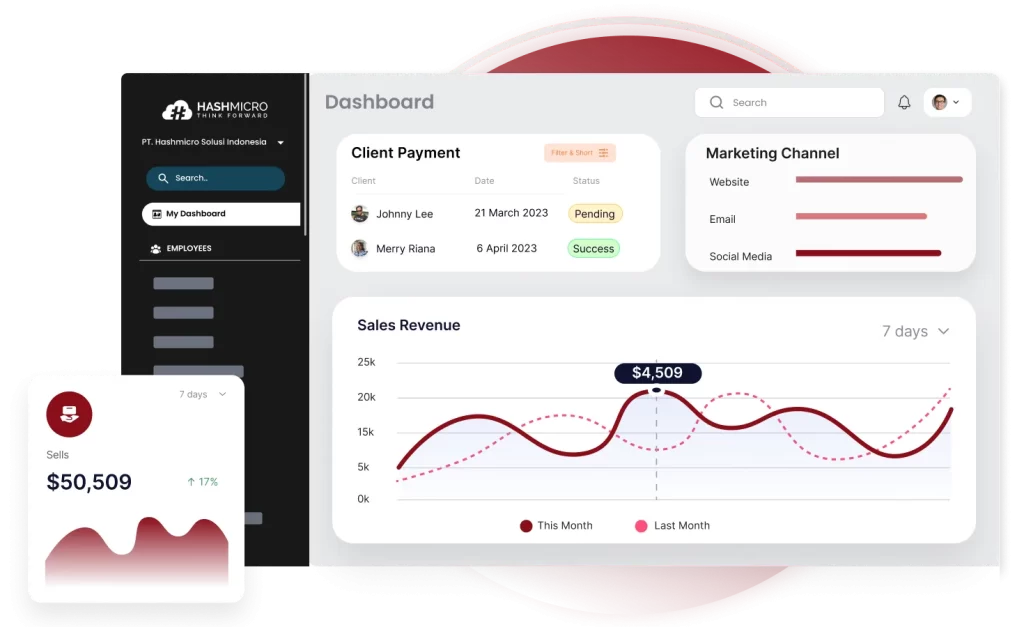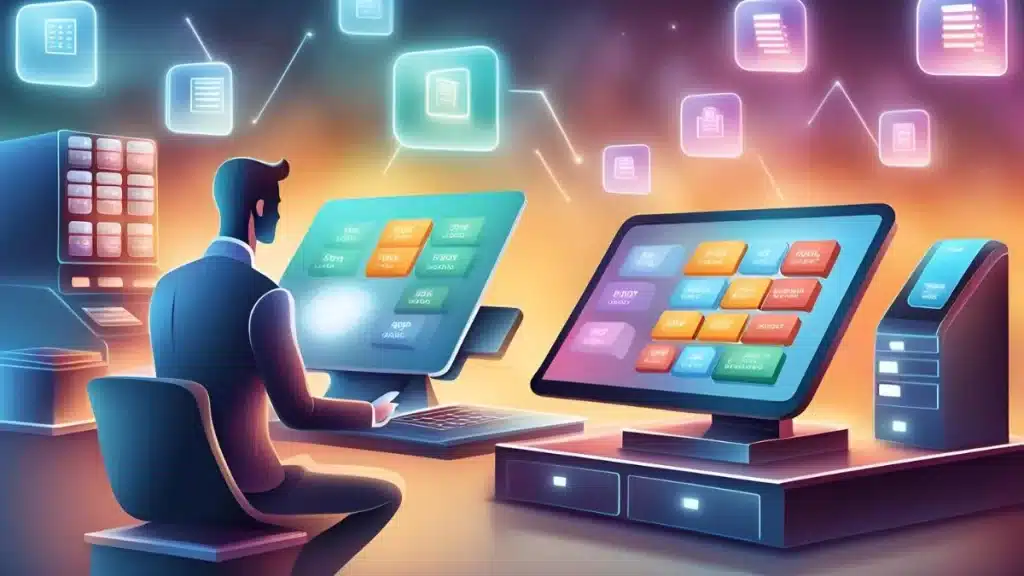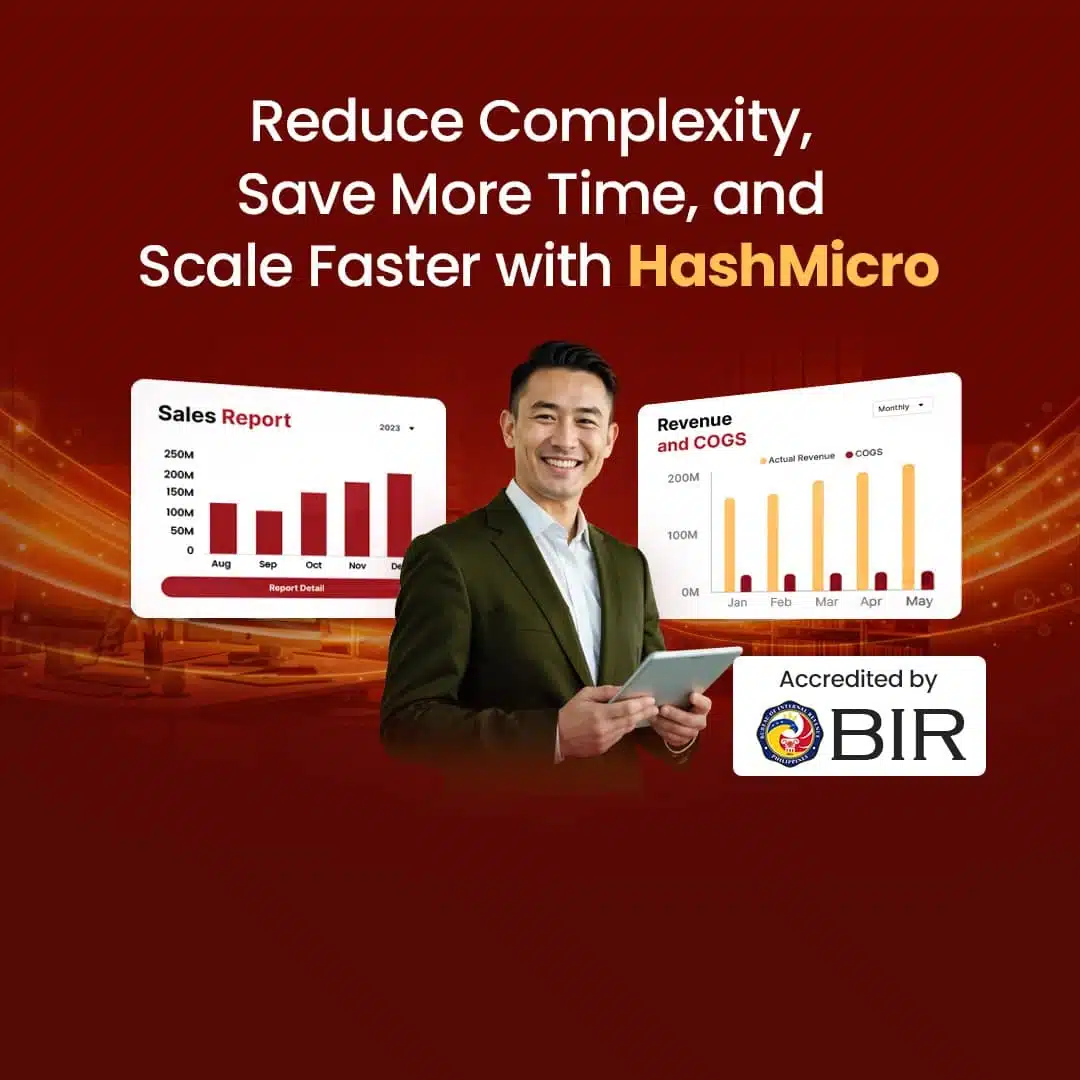Many people find the terms POS and ERP confusing, especially with the emergence of POS ERP programs. As businesses increasingly operate without in-person customer interactions, these terms have become common in business discussions.
ERP software enhances efficiency and productivity across a company’s operations with various key features. It helps streamline business processes and significantly fosters growth. In contrast, POS systems are more specialized.
POS software is customizable to fit each business’s unique needs. It enables payment processing, promotion management, inventory monitoring, and automated report generation—all within a single platform.
Ang artikulong ito ay linawin at ihahambing ang POS at ERP program para sa iyo.
Table of Contents
Key Takeaways
|
What is a Point-of-Sale (POS) System?
Point-of-sale (POS) refers to the location where a customer makes a payment for goods or services and where sales taxes may apply. Marketers value these points highly because consumers often purchase high-margin products or services at these strategic locations.
Historically, businesses positioned POS near store exits to boost impulse purchases from departing customers. However, diverse POS locations allow retailers to micro-market specific product categories and influence consumers earlier in the buying process.
Today, various types of POS system can occur in physical stores, where terminals and systems process credit card payments, or virtual sales points, such as computers or mobile devices. This option is handy for businesses that operate without a physical storefront.
Advantages of Using Point-of-Sale (POS) System
A Point-of-Sale (POS) system is a crucial tool for modern businesses, particularly in retail and hospitality. Here are some key advantages of using a POS system:
1. Ease of use
POS systems are designed for users without technical backgrounds, making them easier for retail employees to operate. ERP systems are often more complex and require more training.
2. Focus on sales
POS systems efficiently manage sales transactions, crucial for retail businesses needing a quick and seamless checkout process.
3. Lower implementation costs
POS systems are generally more affordable and quicker to implement than complex and costly ERP systems. This makes them a good choice for small to medium-sized businesses.
4. Simple inventory management
POS systems offer adequate inventory management features, such as real-time stock tracking. While not as comprehensive as ERP, this is often sufficient for many small businesses. For POS for Philippines’ sari sari stores, these features can greatly simplify inventory management and ensure a smooth operation.
5. Payment support
POS systems usually come with various payment options, including credit cards and digital wallets, making it easier for customers to complete transactions. ERP systems typically do not focus on this aspect.
To boost efficiency and growth, consider upgrading to a quality POS system in the Philippines. A sound POS system streamlines operations, enhances customer experiences, and provides valuable insights, helping your business thrive in a competitive market.
How Retailers Can Utilize This System?

Depending on the software features, retailers can monitor pricing accuracy, inventory changes, gross revenue, and sales patterns. Integrated technology allows retailers to track data effectively, helping them identify pricing or cash flow discrepancies that could lead to profit loss or sales interruptions.
By utilizing retail POS systems that track inventory and purchasing trends, retailers can prevent customer service issues like out-of-stock situations and tailor their purchasing and marketing strategies to align with consumer behavior.
Cloud POS software are becoming increasingly popular, especially among large online merchants, as they enable the tracking and processing of numerous purchases. These systems can significantly reduce the upfront costs of implementing a POS and ERP solution for many businesses.
Understanding ERP Systems
ERP (Enterprise Resource Planning) systems have evolved from traditional client-server software to cloud-based solutions that enable remote, web-based access. Simply put, an ERP system acts as a bridge connecting every computer system within a large organization.
With an ERP system, each department still maintains its system, but all can be accessed through a single application and interface. ERP gathers data on various divisions’ activities and statuses, making it available for productive use across the organization.
Elevate your operations with the best ERP software in Philippines; you can download the price scheme below.
Advantages of ERP Systems
Implementing an Enterprise Resource Planning (ERP) system can transform organizations’ operations. Here are some key advantages:
1. Multifunctional integration
ERP systems integrate various business functions, such as finance, HR, and inventory management, into a single platform. In contrast, POS transaction systems primarily focus on sales transactions and cash management.
2. In-depth data analysis
ERP provides comprehensive analytics and reporting on overall business performance, not just sales figures. POS typically offers insights limited to daily or monthly sales.
3. Supply chain management
ERP includes features for managing the entire supply chain, including procurement and logistics. POS systems lack these capabilities, making them less effective for managing inventory and suppliers.
4. Compliance and regulation
Many ERP systems have tools to help businesses adhere to industry regulations and standards. POS systems usually do not provide these features.
5. Scalability
ERP systems are more easily scalable to support business growth, allowing for the addition of new modules as needed. POS systems tend to be more limited in terms of features and functionality that can be added.
POS vs ERP: Which Should You Choose?

Understanding the difference between ERP and POS systems is crucial, as they serve distinct markets. POS software focuses on sales transactions, managing payments, and tracking customer orders, enhancing retail operations and customer interaction.
In the POS vs ERP debate, scope sets them apart. POS optimizes sales and improves customer service, while ERP handles broader functions like procurement, research, and quality control, integrating departments for seamless information flow.
Consider your specific business needs when choosing between a POS and ERP system. POS systems suit retail environments needing quick transactions, while ERP systems benefit larger organizations with complex operations.
Ultimately, the decision depends on business size and industry. Smaller retailers may prefer a focused POS system, while larger enterprises might find ERP systems more effective for managing interconnected processes and data.
If you’re looking for a reliable ERP solution, consider HashMicro to help optimize your business. Makipag-ugnayan sa amin para malaman kung paano makakatulong ang HashMicro!

Conclusion
At first glance, POS and ERP systems may seem quite different, but both aim to enhance business efficiency. POS software is a modern cash register, while ERP provides a holistic solution for managing day-to-day operations like procurement and sales.
If you’re looking for a solution that streamlines transactions and integrates multiple functions, consider exploring ERP options that meet your business needs. HashMicro’s ERP software offers features such as payment handling, promotion management, and automatic reporting—all in one customizable platform suitable for various industries.
Additionally, you’ll benefit from features such as offline/online transaction capabilities, a web-based system, easy management of multiple branches, and reliable analytics. Explore HashMicro’s POS ERP software today!
Gustong malaman kung paano ito gumagana? Subukan ang aming libreng demo ngayon!

FAQ
-
Is POS included in ERP?
Yes, POS can be a part of an ERP system, focusing on sales transactions while ERP integrates broader business processes.
-
What are the benefits of integrating POS with ERP?
Integration streamlines data flow, enhances real-time reporting, improves inventory management, and provides better insights into sales.
-
Can a business operate with just a POS system?
Yes, but as a business grows, using an ERP alongside POS improves efficiency and supports scalability.




































